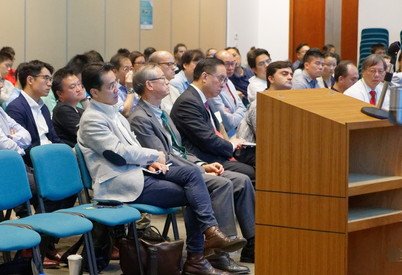Data: Now Open for Business
There is enormous public benefit from these plans for making government data open. The reality is the government can never supply enough information, and the cost of making these data available is marginal.
Like most governments, the Hong Kong government collects, holds and controls vast amounts of data on areas from air quality to traffic and from crime to language use. When it comes to sharing that information with the public, however, Hong Kong has lagged behind. Hong Kong currently ranks 24th on the Global Open Data Index, far behind Taiwan, which ranks first, and the UK, which is third. In a push led by Professor John Bacon-Shone, Director of the Social Sciences Research Centre, much of Hong Kong’s data is now starting to make its way into the public realm.
Professor Bacon-Shone’s Open Data Initiative Benchmarking Report highlighted Hong Kong’s poor position in the open data rankings and identified ways to improve, including by making data available in easily downloadable formats or updating information already available online. The report helped convince the Hong Kong government to overcome its historic reluctance to share information and commit to a new open data policy. About 80 government departments and bureaux published their first annual open data plans last year, and the Office of the Government Chief Information Officer has promised that more than 650 new data sets will be shared this year, all in machine readable formats.
Recognising the need to build a shared vision for change, Professor Bacon-Shone organised a conference that brought together data creators and owners, government, academics and users to share ideas on how data sharing could benefit society. Making more data available, while also ensuring that personal or sensitive data remains protected, will open up new opportunities for enterprising start-ups and businesses. Tech-savvy companies can package the data in apps to make it easily accessible for public consumption, providing both good money-making opportunities for small businesses and a valuable public service, said Professor Bacon-Shone.
“There is enormous public benefit from these plans for making government data open,” he said. “The reality is the government can never supply enough information, and the cost of making these data available is marginal.”
Cross-referencing much of the newly available data will help people to simplify and improve their daily lives in popular areas such as planning outdoor activities. Air quality data collected by the government, for example, is already available to the public, but without combining it with mapping data, it has not been specific enough to enable people to find out about the air quality in their neighbourhood or on their planned route and enable them to avoid pollution. If and when Lands Department makes all its maps freely available, many more apps will be able to help people make informed decisions.
Now the government has just reached agreement on accessing data from some licensed transport operators, the next step will be public access to exact arrival and departure times of public transport, as in London, Professor Bacon-Shone expects.




